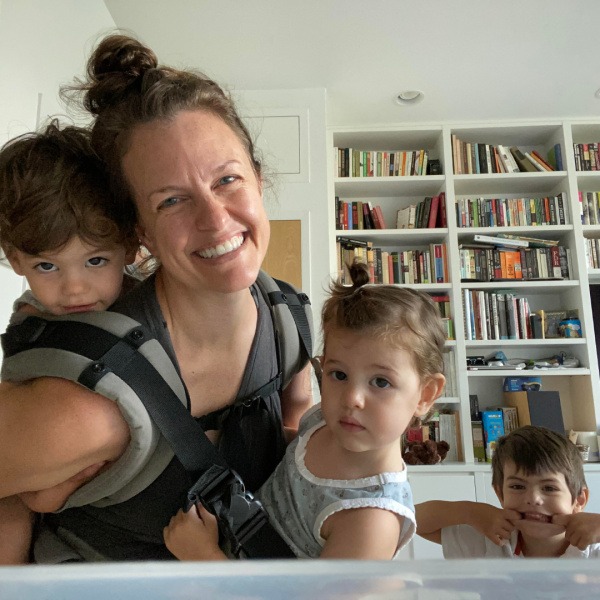This is our final edition with Jenny Best, founder of Solid Starts. Today she’ll be laying out her third tip for dealing with picky toddlers at mealtime. Fair warning, this one might be the toughest to stick with!
ASK AN EXPERT:
We sat down with Jenny Best, the Founder of Solid Starts, A Baby Food Revolution. The Solid Starts team consists of parents, feeding therapists, swallowing specialists, pediatricians, an allergist, pediatric dietitians, lactation consultants, and a nutritionist. To learn more, check out their website, Instagram, or brand-new app.
–
[This interview had been edited for time and clarity.]
Ok, last week we talked about your first two tips for toddlers at mealtime. What’s your third piece of advice around feeding toddlers?
Be 100 percent okay if they decide not to eat. We are the children of parents who had parents with post-war lives. My Italian grandmother– I don’t know about your grandmother– her goal is just to fatten up kids. But she comes from a post-war mentality, where there was a real reason to believe that. So I want you to be totally ok if your child doesn’t eat. And I know that is so so hard for parents, but any other reaction to that will likely lead to more food refusal.
So how exactly would this play out?
Here are some examples: “I’m not hungry. I don’t want to eat this dinner, mom.” And it’s pizza, which they always eat. Your response: “Ok that’s your decision. You don’t have to eat if you don’t want to. But there’s not going to be any other food tonight. So the next meal will be at breakfast tomorrow morning. Does that work for you?” Yes, okay, your toddler leaves the table. Twenty minutes later, “I’m starving!!” “Hmm, I wonder if your belly is rumbling because you decided not to eat your dinner tonight. What do you think?” And help them learn that the feeling they’re having is because they chose this other thing.
So basically they’re learning cause and effect?
Exactly. Help them learn the cause and effect of their own decisions. Which for us is a no-brainer, but for them, it’s not. They have to learn it through experiencing it. No amount of you telling them that that’s what’s going to happen is going to work. They need to experience it themselves.
And what do you do then? Give in or stand firm?
In that movement, you can decide if you’ll invite them back to the table to have the original meal that’s planned. Or hold a firm boundary and let them learn the consequences. That’s the personal choice of parenting and there’s nothing wrong with either approach. But consistency is key.
The takeaway is to be ok if the child doesn’t eat. Be ok with it. If you show frustration– if you say “Are you sure you said you wanted pizza tonight?” It’s going to lead to more food refusal.
